Captain Cook and the Northwest Passage
If you are forced to have a favorite European man-explorer, Cook's probably the one to go with.
A book to read: The Wide Wide Sea by Hampton Sides
Usually, when I binge a book (aka, read the whole thing in a day or weekend), it’s a quick novel with a sparkly character or a gripping hook. It’s usually not a 300+ page nonfiction book about some dude. Those books sit on my bedside table for a year and I read a page or two every day for an entire year at which point I’ve finished half of it. (Looking at you, Frederick Douglass: Prophet of Freedom)
But last week I read THE WIDE WIDE SEA: Imperial Ambition, First Contact, and the Fateful Final Voyage of Captain James Cook by Hampton Sides in three or four long reading sessions. It was so, so good. I thought it was immensely better than THE WAGER, which was last year’s historical-ship-book-to-buy-your-Dad.
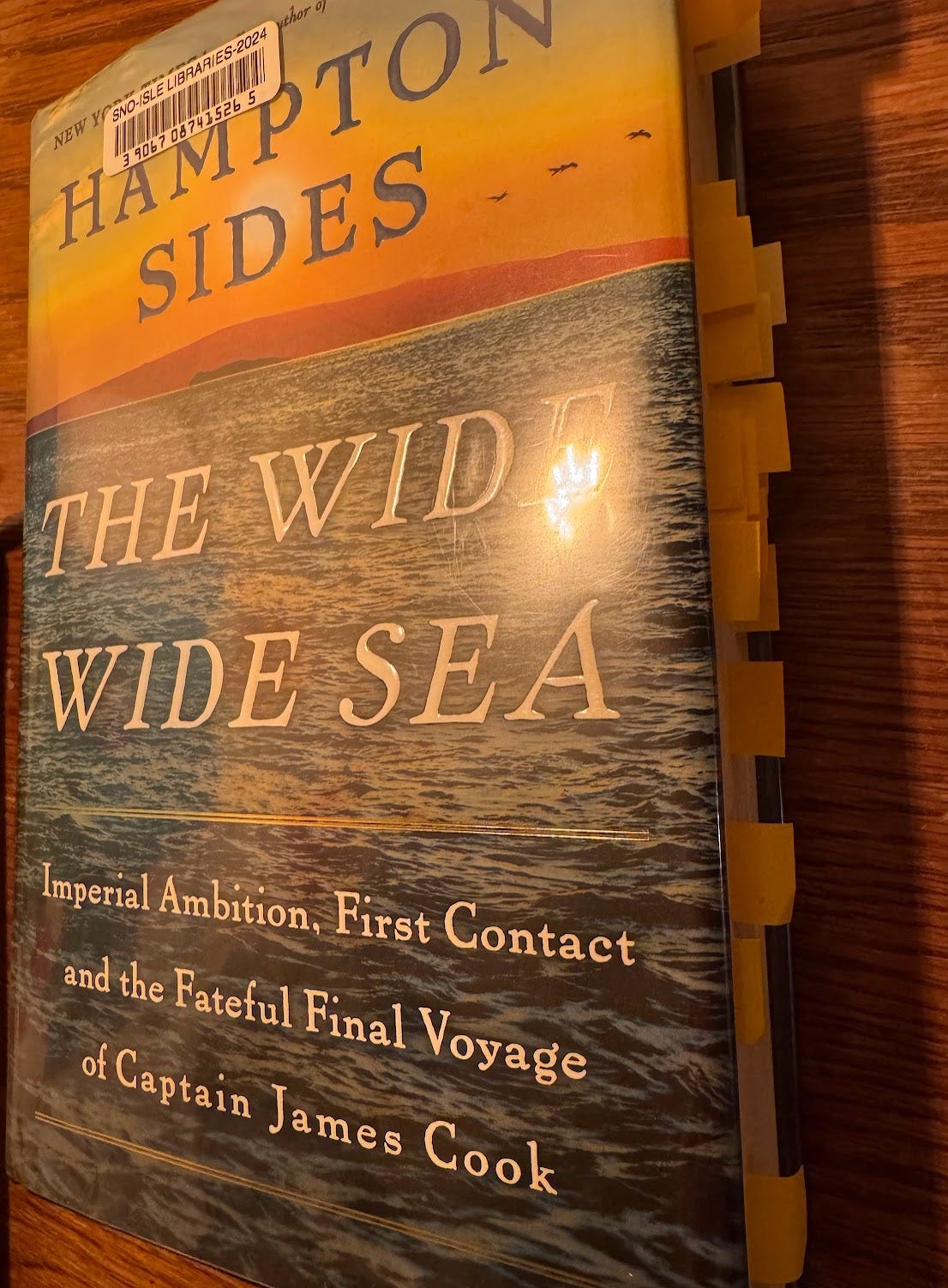
It’s not quite a Captain Cook biography, but a story that just covers his third and final voyage from Europe to Africa, (almost) Antarctica, Polynesia, the west coast of America to the Bering Strait and finally, Hawai’i.1 It’s all happening during the late 1770s, which is obviously an important time in British-US relations.
Author Hampton Sides is phenomenal. The story is incredibly fast-paced, but somehow Sides still stuffs the pages full of historical details and tales of individual Polynesians. As always, my favorite part of his writing was the immersive descriptions of each new island or inlet where Cook dropped anchor. Each page had a delicious sense of place.
Now, about this Captain Cook fellow:
Captain James Cook did further British exploration and imperialism around the globe, which has had devastating consequences to pretty much any community that wasn’t European, so you certainly don’t have to like the guy or what he represents.
However, as eighteenth-century explorers go, he wasn’t too bad. Here is author Hampton Sides:
“Call it an enlightened tolerance or call it moral relativism, but Cook didn’t believe in superimposing Christian morality of English ethics on situation he encountered on the other side of the globe.”2
Cook refused to have priests on his ships and he hated European evangelism. Instead of judging customs he didn’t understand, Cook would record situations with considerably less prejudice than Europeans who came before him and would come after him.
Cook also wasn’t the raping/killing/pillaging fiend that other explorers and conquistadors were. He usually approached new communities unarmed, with a sense of curiosity rather than disdain or fear - although there were a few tragic exceptions. Cook did his best to restrain his crew from spreading their venereal diseases to Native women (this was largely unsuccessful).
He also seemed to have more respect for the people he met during his travels. I teach my students about how European explorers refused to believe that Polynesian Wayfinders purposefully sailed back and forth between New Zealand and Hawai’i - most believed that a series of maritime accidents and shipwrecks were responsible for populating the islands (then my students read from Polynesians who dispel the notion - see below for more details), but not Cook. He was amazed at the sailing abilities of Polynesians and frequently asked for advice.
He was also pretty thoughtful about his impact. Writing about the Māori, here is what Cook had to say:
We debauch their moral and we introduce among them wants and diseases which they never before knew… [his stops in New Zealand]…serve only to disturb that…tranquillity they and their forefathers had enjoyed. If anyone denies the truth of this assertion, let him tell me what the native of the whole extent of America have gained by the commerce they have had with the Europeans.3
However, (and despite the past 6 paragraphs) I’m not really here to be a Cook apologist. The dude knew he was disturbing the tranquility of the Pacific and yet there he went off again, leaving his wife and three sons (the youngest being 6 weeks old) to go hang out with his canons, riggings, and disease-ridden crew.
Whether you want to tolerate, excuse, or hate Cook, this is the book to read while you do it.
A place to explore:
I love it when books are set near my home. Not very many books are set in Seattle, or even the Pacific Northwest, so I often seek them out. (See: newsletters on BEAR, ELIZA WAITE, and A WILD AND HEAVENLY PLACE). Therefore, when characters in a book unexpectedly sail by my corner of the world, I get excited.
After Captain Cook and his crew sailed around Africa, through Polynesia, and jetted off from Hawaii, I was near giddy with excitement as the crew headed towards the “so-called backside of North America.”4
As the crew sailed up towards Northern California “there was a confusion of winds, slanting sleet, and swirling fog,”5 I thought about that one 4th of July I spent in California and the crowd could barely make out the fireworks through all the fog on San Francisco Bay. Ha. Classic.
When “a vista of snow-dusted land, somewhere along the central coast of present-day Oregon,” was mentioned, I hoped that reading about snow in the Pacific Northwest would bring actual snow. I’m desperate for a snow day (or four).
When Cook “glided into a protected inlet where the winds were calm and the water was a tranquil limpid green.” I paused my reading to give a happy sigh of recognition. It’s so lovely when you can picture a landscape in a book so perfectly, having lived it nearly every day of your life. “Snow-covered peaks rose above dense walls of hemlock, spruce, cedar, and fir. At the tops of the trees, bald eagles stirred in their nests. Close to the rocky shoreline, harlequin ducks dived from clams.”6
Ahh, so nice. Is this how New Yorkers feel when they read literally every other book in the world that lovingly describes their city that never sleeps? I’m jealous.
Anyway, my happy sighs of literary recognition were short lived because Cook missed both the mouth of the Columbia River (between Oregon and Washington) and the Strait of Juan de Fuca (which separates the USA and Canada’s Vancouver Island). This was probably lucky for him, because he likely would have traveled down the strait in a frenzied and fruitless search for the Northwest Passage which would have dead-ended at the Southern edge of the Salish Sea near where Washington’s Capitol buildings are today.
It was definitely lucky for the Makah, Ozette, Quileute, Hoh, and Quinault Native Americans who lived and still live along the western edge of Washington state. They got to a few more generations before being exposed to venereal disease.
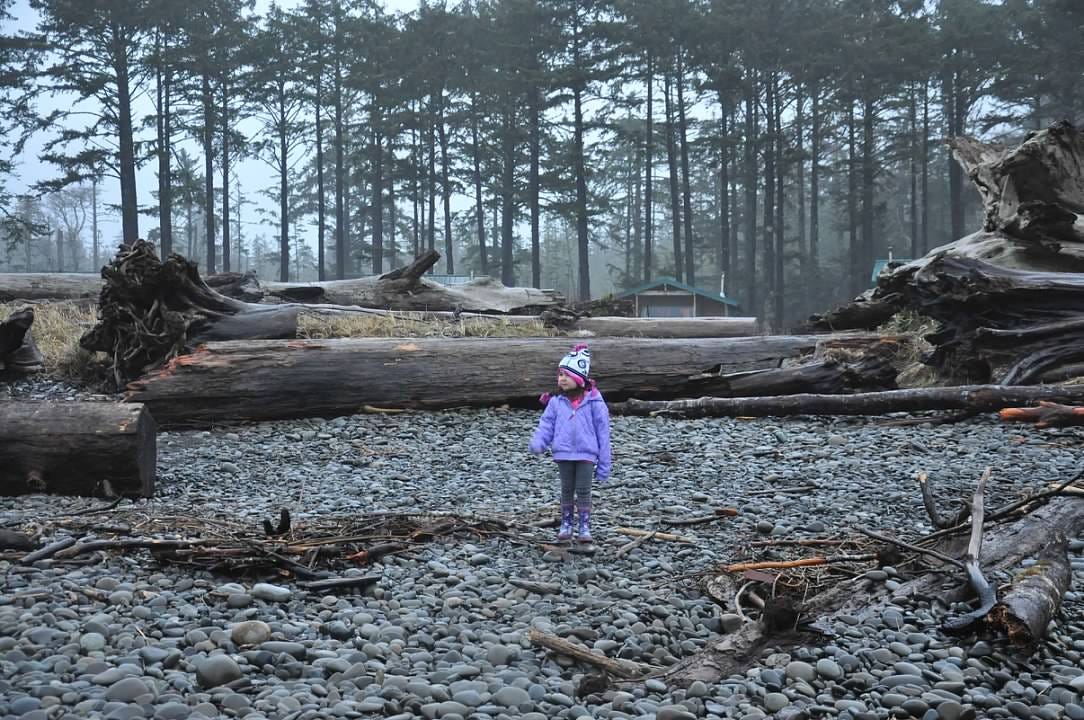
After skipping over my state, Cook’s crew stopped at Nootka Sound on Vancouver Island. Twenty-year-old George Vancouver was on Cook’s crew during the voyage, and he returned to the area 14 years later to name everything after himself.

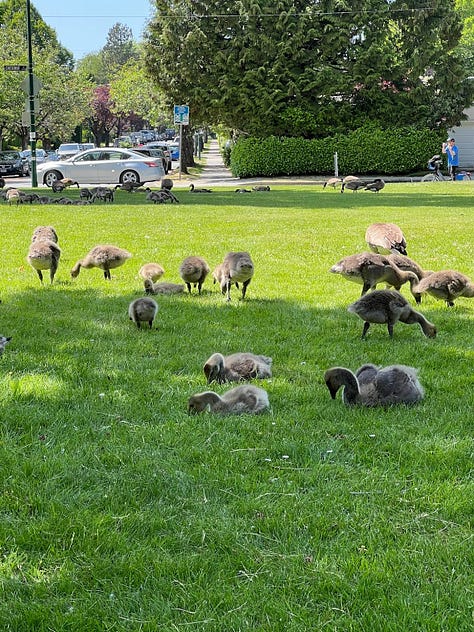
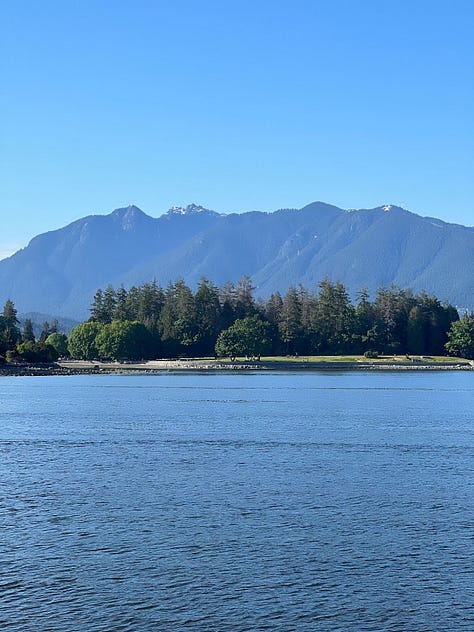
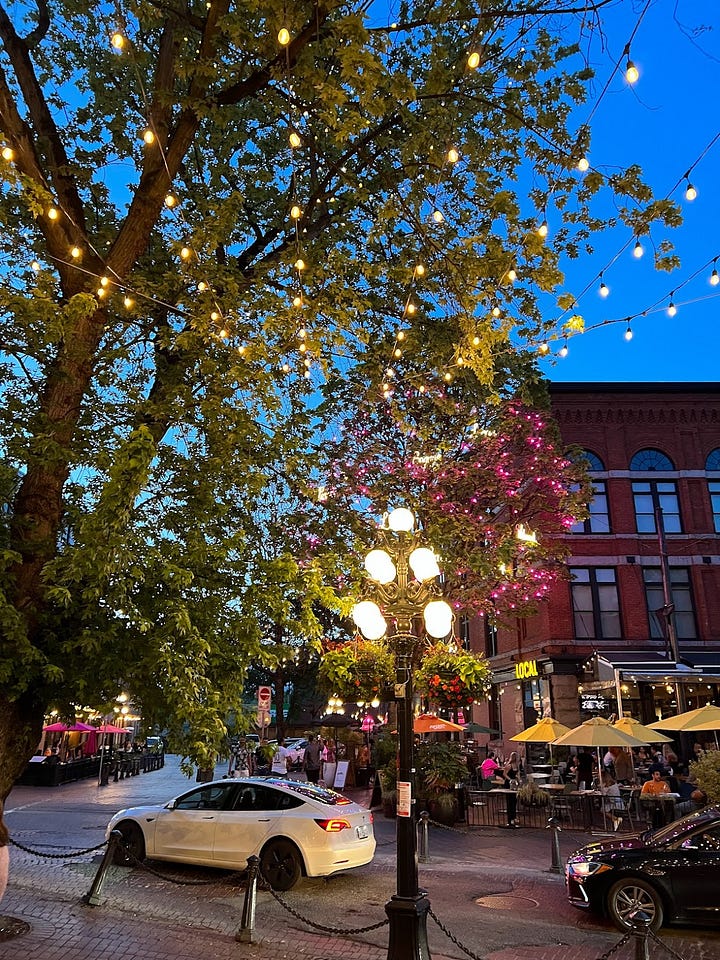
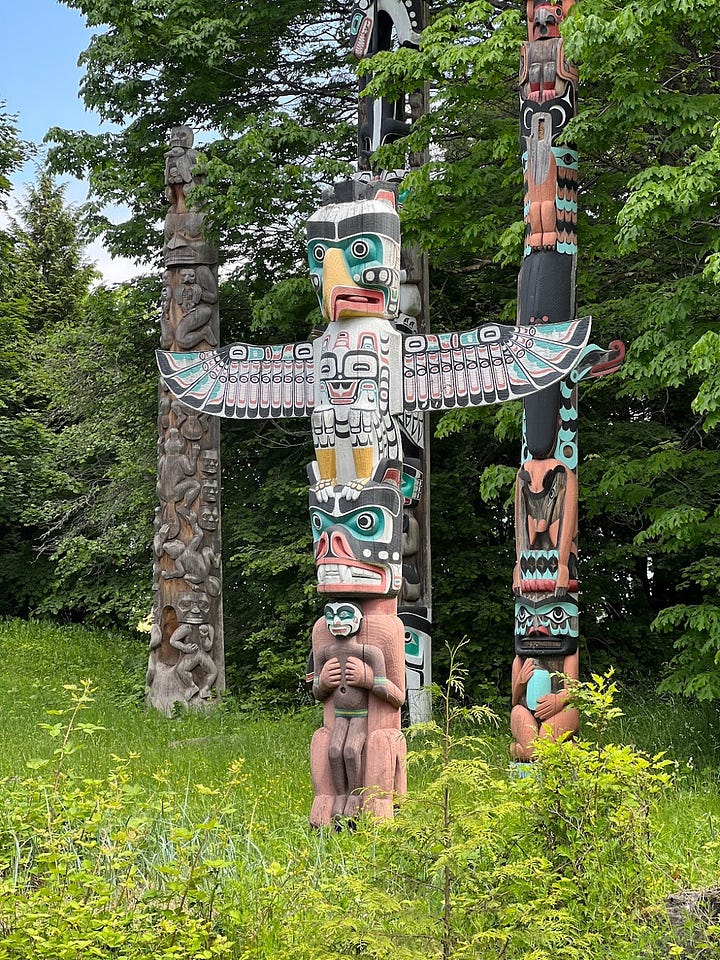
A lesson to teach: Polynesian Wayfinding
While reading, I flagged a few sections that I knew I wanted to share with students. As part of their exploration unit, students study Polynesian Wayfinding. I write extensively about the unit for the LitThink Podcast here, but here is what I’ve updated after reading THE WIDE WIDE SEA:
As a sourcing review, I give my students a mix of primary and secondary sources about Polynesian Wayfinding and have them do a bit of thinking about them. Because two of the sources were created by Tupaia, I perked up when Sides wrote about Tupaia. Unfortunately, the Polynesian navigator died before Cook’s third voyage so there wasn’t tons of info, but Sides did have a few paragraphs about Tupaia, which I reproduced for my students to read before they look at Tupaia’s map and pictures.
My students watch a TED-Ed video created in collaboration with Alan Tamayose, a Polynesian scholar, which insinuates that the Polynesian culture was very peaceful. This is in direct contrast to several stories in THE WIDE WIDE SEA. The passage in particular doesn’t exactly suggest a tendency towards peace:7
“In Polynesian warfare, battles were often fought just offshore. Warriors would lack two canoes together and fight with clubs, rocks, and spears crafted from stingray barbs, until every last person in the losing vessel had been killed. If the battle occurred on land, the fighting was just as fierce. Warriors would fight to the death, and it was not uncommon for the victors to mutilate enemy corpses. They would sometimes rip away the chin of a dead foe, pulling out the jawbone as a trophy. Or they would flatten the eviscerated corpse with clubs, then cut a hole through the abdomen, through which the triumphant warrior would insert his head to “wear” his victim as a sort of macabre serape.”
I love it when I can give students two pieces of evidence that contradict each other. Then students can grapple with which piece of evidence they believe and why. Good historical thinking skills!
Happy teaching, traveling, and reading! See y’all next Sunday.
Questions:
What is your favorite book set in your hometown? I’m starting a spreadsheet.
What is your favorite non-fiction book? Mine is KING LEOPOLD’S GHOST
Have you ever been to a Polynesian island? If so, I’m jealous.
Affiliate book links in this newsletter are through Bookshop, a book-buying platform that gives independent bookstores tools to compete online and maintain their presence in local communities. If you purchase books via the links in this newsletter, you’ll are financially supporting me AND your local independent book store, so thank you!
Hawai’i had been previously unknown to Europeans.
pg 124
pg 131
pg 30
pg 230
pg 234
pg 21



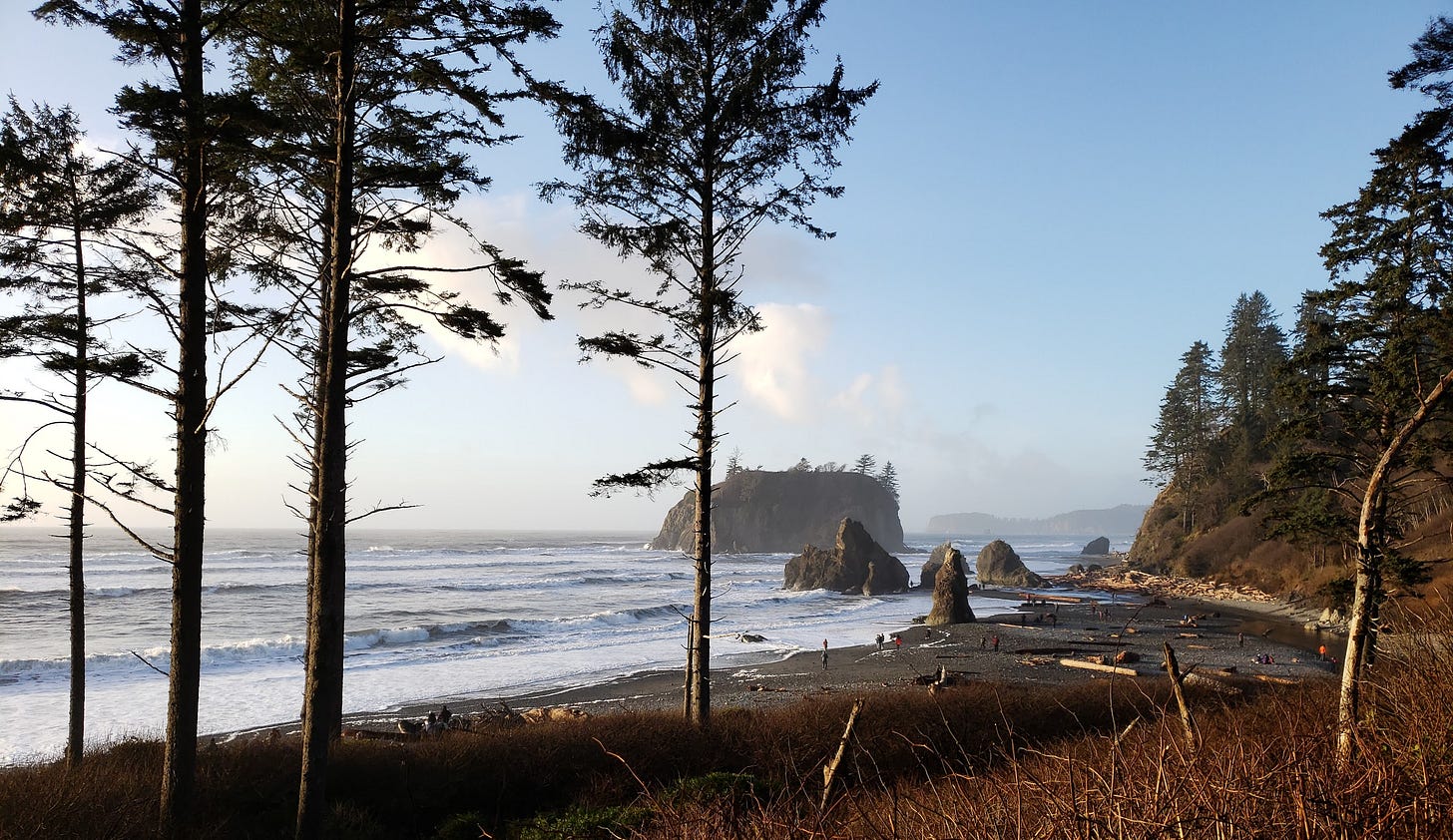
I don’t know if it’s all time fav, but my most recent adventuress fave is Brave The Wild River about Elzada Clover and Lois Jotter who were the first people (also ladies) to “botanize” the Grand Canyon. (In the book botanize doesn’t get quotation marks, it’s apparently just a straight up verb.) My complete gushing over it is here: https://open.substack.com/pub/kellyturner/p/spend-your-holiday-season-with-clover?r=oqlw9&utm_medium=ios&utm_campaign=post
Cannot recommend this book more. So well done.
I loved this whole post so so so much! And now I want to read this book right away. I laughed, I cried (not really, but I did cringe at the tactics of early explorers), I felt homesick for WA state. Also, the unit on Wayfinders sounds so inspired and I wish I was in your class even tho I’m 41 yrs old but I can’t remember anything any of my history teachers taught me so they obvi weren’t you! Lastly, my family grew up going to the cabins at La Push! The place is so close to my heart I gasped when I saw the pic. Thanks for the good read!